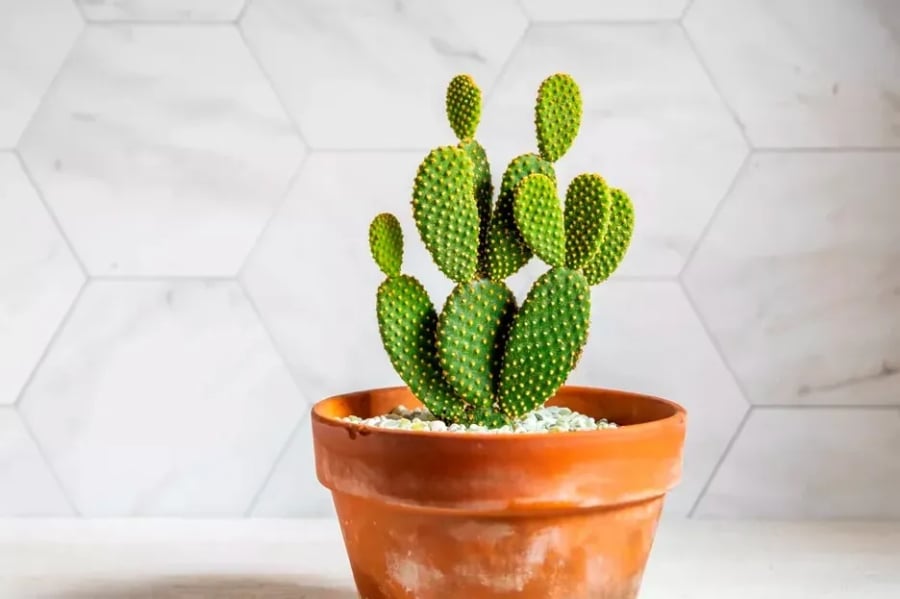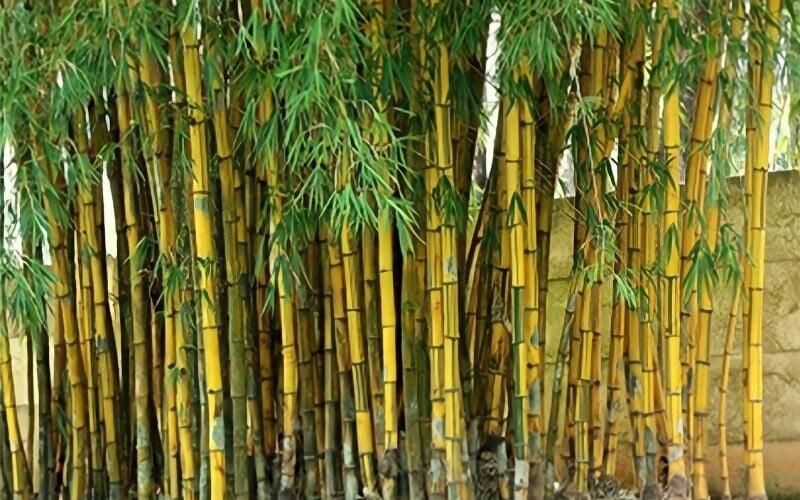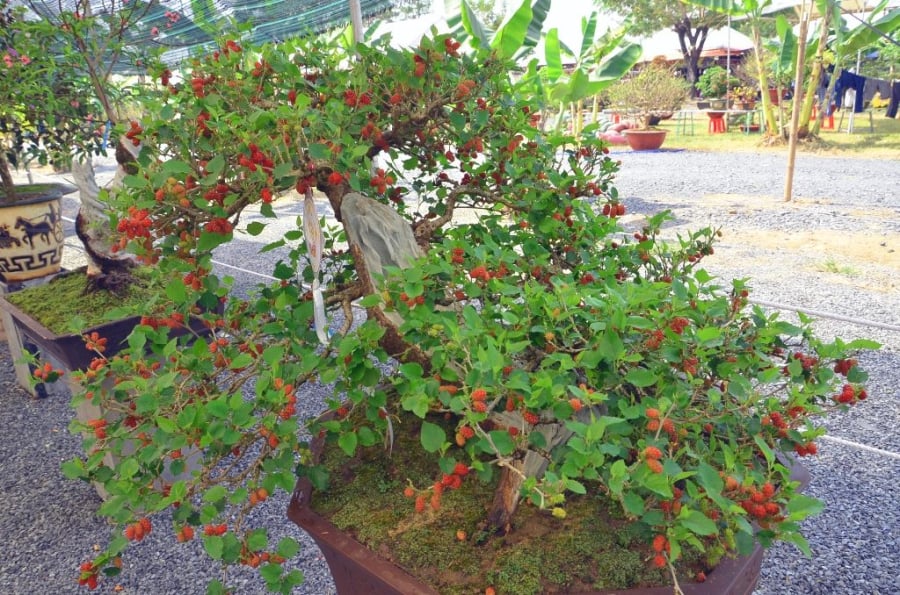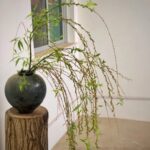When choosing plants for your garden, selecting the right ones and placing them in the right spots are equally important. According to feng shui, some plants are better suited for the backyard and can bring good fortune and prosperity to the homeowners.
Cactus
Cacti are known for their sharp spines, and in feng shui, they are believed to carry negative energy. Therefore, it is not advisable to plant them in the front yard as they may create a barrier of negative energy, blocking positive energy from entering the house.
The front yard is a place where people frequently gather and move around. The spines of cacti can pose a safety hazard, especially for families with young children. By planting cacti in the backyard, you ensure the safety of your family members and maintain a positive energy flow into the house.

Planting cacti in the backyard ensures safety and maintains a positive energy flow into the house.
Bamboo
Bamboo has a straight trunk with distinct joints and can grow up to 2-3 meters tall in clumps. In feng shui, bamboo symbolizes strength, resilience, and integrity. Planting bamboo in your garden is believed to bring good luck and increase wealth.
The best place to plant bamboo is at the back of the house. It fosters stronger bonds and brings happiness to the family. Avoid planting bamboo in the front yard as its height can block the view and hinder the entry of sunlight and wealth into the house.

Avoid planting bamboo in the front yard as it can block the view and hinder the entry of wealth.
Bodhi Tree
The Bodhi Tree is considered sacred and closely associated with Buddhist teachings. In its natural habitat, it can grow up to 20-25 meters tall. When grown in pots, its branches can be bent and shaped into unique bonsai designs. Its distinctive heart-shaped leaves with prominent feather-like veins add to its appeal.
This tree symbolizes enlightenment, awareness, and clarity. Feng shui also believes that it has the power to ward off evil spirits and bring peace and good fortune to the family. Due to its height and dense foliage, it is not suitable for the front yard as it may block sunlight and positive energy. Planting it in the backyard is like having the house protected by a guardian Buddha.
Mulberry Tree
The mulberry tree is familiar to many Vietnamese. It grows wild along fences and is also cultivated in gardens for its fruit. Nowadays, people also grow mulberry bonsai as a hobby.
However, it is not customary to plant mulberry trees in the front yard. In Chinese, its name sounds similar to “tang,” which evokes associations with sadness and misfortune, disrupting the flow of wealth. Mulberry trees carry strong yin energy, and the backyard, being the entry point for evil spirits, is an ideal place to plant them. With a strong yin presence, evil spirits will assume that a guardian is already in place and will not dare to intrude. As a result, the family enjoys harmony, and their endeavors become increasingly successful.

Mulberry trees, with their strong yin energy, are ideal for keeping evil spirits at bay.
Ornamental Banana Tree
Ornamental banana trees combine classical and modern aesthetics. They typically grow to a height of 1-1.5 meters and feature impressive large, long leaves.
From a feng shui perspective, these trees absorb negative energy and stimulate positive energy, attracting good luck and wealth to the homeowners. For this reason, ornamental banana trees are becoming a popular choice for gardens.
However, like the previously mentioned plants, their dense and expansive foliage makes them unsuitable for the front yard. They obstruct the view and prevent natural light from entering the house. When planted in the backyard, their leaves provide a shield against cold northern winds and reduce the intensity of the western sun in the afternoons.
Information provided is for reference and contemplation only.
The Ultimate Guide to Office Air Purification: 6 Houseplants to Combat Computer Radiation
To mitigate the heat radiation emitted by computers, consider incorporating certain types of indoor plants into your workspace décor. These plants not only enhance the aesthetic appeal of your desk but also serve as a natural barrier against harmful rays emitted by technological devices, particularly computers and phones.
The Ancient Village’s 800-Year-Old Treasure: A Sanctuary for Healing
Nestled in the heart of Nam Dinh, Dich Diep Ancient Village transports visitors back in time with its serene ambiance, ancient temples, and a well that holds a secret – an 800-year-old treasure. This hidden gem, with its unique blend of historical and cultural attractions, has become a must-visit destination for those seeking a glimpse into Vietnam’s rich and ancient past.




































